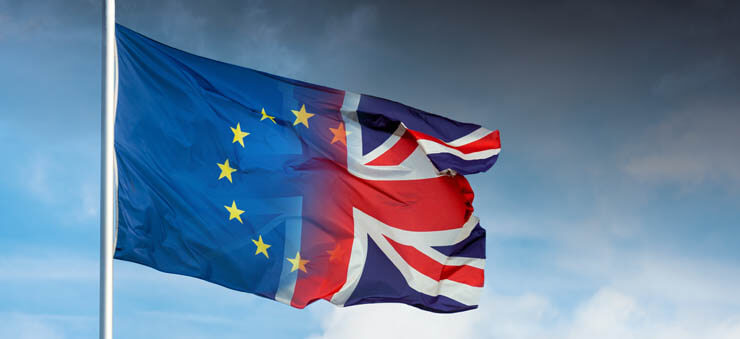GBP/EUR Slides on Eurozone Optimism & Brexit Woes

- Eurozone economy showing signs of recovery
- Speculators back out of euro short positions
- Brexit fears dominate 2020 forecasts
The GBP/EUR exchange rate has been sliding since the beginning of the week when it opened at 1.1736. The downtrend continued today as speculators closed out their short euro positions on the back of Eurozone optimism.
The GBP/EUR closed the week at 1.17278. The currency pair reached a low of 1.16770 around the middle of the week, and a high of 1.17489. It mainly stuck around the 1.17 level, though.
Euro saw some gains amid hopes for a better 2020
The Eurozone has had a tough 2019, with many of the bloc’s economies slowing down or even contracting. This put a lot of pressure on the euro.
The US dollar, on the other hand, did well for most of the year. This was mainly on the back of the resilience exhibited by the economy in the US.
Thus, the weak results out of the Eurozone and the US dollar’s strength led to the euro struggling throughout 2019.
However, December seems to have buoyed confidence as it seems the Eurozone might be recovering. Somewhat better economic data and the truce between the United States and China have improved business confidence.
This optimism has led to the euro seeing some gains, especially since the hope is that 2020 will be better.
There are also concerns regarding the US dollar. Indications are that the Fed could take a more dovish stance next year if US forecasts don’t improve.
Euro strengthened as investors closed short positions
The euro also saw some gains today as investors closed out short positions. Some experts say this is based on optimism. Others claim it’s a matter of “negative sentiment running out of steam.”
Ulrich Leuchtmann, a Commerzbank analyst, stated, “What I’m seeing here, it’s mainly some euro strength. This very negative euro sentiment has prevailed over 2019 and has run out of steam … coming to this period of low liquidity, more people are more inclined to remove those short positions.”
Regardless of the reason, leveraged funds reduced their short euro positions from $14.84 billion to $9.16 billion, according to Reuter. This occurred in the second week of December, with more investors following suit later.
The low level of liquidity in the market due to the holidays amplified the effect of these moves. This led to the euro seeing some gains. However, there is concern that it’s only a temporary situation as there are a significant number of options set to expire between $1.1155 and $1.1160. This could eradicate at least some of the euro’s gains.
Pound continues to feel the pressure of Brexit
The pound has been suffering lately, despite having seen some gains after the Conservatives won the UK election. Last week, Prime Minister Boris Johnson introduced a clause into the Brexit bill outlawing any extensions.
The UK will leave the EU at the end of January 2020. However, the UK will then enter a transition phase, which will involve further negotiations. During this time, the country will still follow the major laws in the EU.
The end of the transition phase is set for December 2020. Many experts believed this phase would have to be extended beyond December. Many issues need to be addressed, and eleven months is a short timeframe to do so.
Ursula Von der Leyen, President of the European Commission, suggested that Johnson should reconsider his stance on delays. She said she’s seriously concerned over the time available for negotiations.
The repercussions could be significant for both sides if an effective deal isn’t reached. For example, if the UK leaves the EU without a trade deal, the country would experience serious economic disruption. Restrictions on quantities sold in the EU would be applied, as well as taxes.
This has, of course, placed pressure on the pound. It’s likely that, throughout the transition phase, the pound will mainly be driven by news regarding the negotiations.

